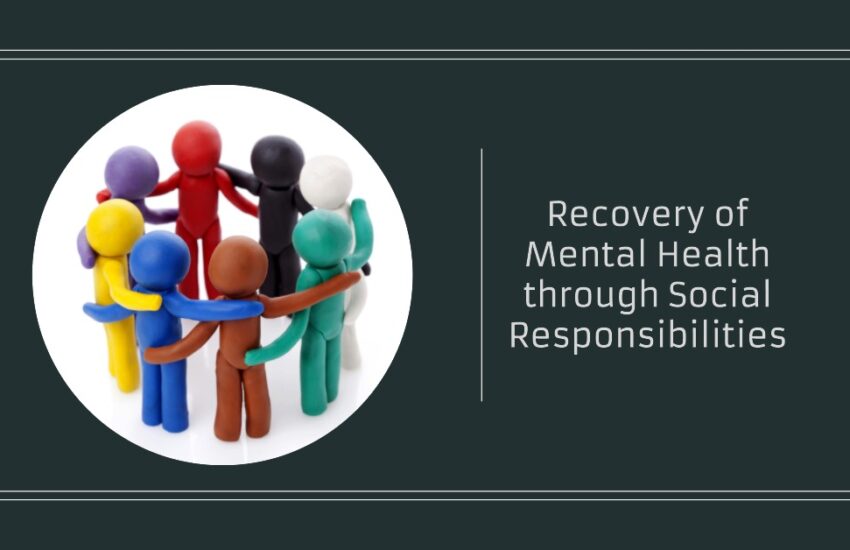How would you strike a balance between mental health recovery and societal responsibility? I’ve had to weigh my obligations to myself against my societal responsibilities as I’ve recovered my mental health.
My obligations to myself, such as establishing sound boundaries, developing the self-control necessary to form wholesome routines, and engaging in self-care, are crucial.
It’s taken me a long time to learn about, comprehend, and carry out these obligations, but as I gradually get better at it, I can’t help but wonder: Have I been avoiding my social obligations What role does social responsibility play in the healing spravato rems of mental health
Social duties are essential to promoting an atmosphere that is inclusive and supportive of mental health rehabilitation. Breaking stigmas and fostering understanding are essential to acknowledging and addressing mental health issues on a social level.
It is the duty of communities and institutions to establish environments that value mental health, guarantee access to mental health resources, and provide support systems.
Don’t Forget About Your Mental Health Recovery
One of my main issues is that I’m usually all or nothing. I have two choices: I may fully neglect my own needs in order to support people around me, or I can dedicate all of my time and effort to improving myself.
I’ve never been particularly adept at putting my energy and compassion toward helping other people without sacrificing myself. However, now that I’ve mostly recovered enough to leave survival mode behind, I want to change that.
Giving up on the notion of pure altruism seems like a good approach to accomplish this and accomplish two goals at once. In other words, seek out opportunities to volunteer in your community that will also improve your emotional well-being.
Destigmatizing Mental Health, Promoting Understanding
For example, I prefer to isolate myself because I’m quite worried, but I also get along well with people, so seclusion isn’t healthy for me. By offering my time to assist groups of people for a worthy cause, I may meet my obligations to the world around me as well as to myself.
Social duties in mental health rehabilitation are essential to creating a welcoming and helpful atmosphere for those dealing with mental health issues. It is becoming more and more clear that society needs to take responsibility for mental health concerns as awareness of their prevalence and effects grows.
Social obligations in this context include a number of things, such as de-stigmatizing mental health, raising awareness, and fostering compassion in the community.
Encouraging Mental Health Literacy to Empower People
The fight against the stigma associated with mental health is one of our main social responsibilities. Stereotypes and beliefs about mental diseases are frequently associated by society, which fuels discrimination and exclusion. To dismantle these obstacles, people must work together to question social conventions and inform the public.
Promoting candid discussions on mental health helps debunk misconceptions and enables people to open up about their experiences without worrying about being judged. Communities may contribute to a more inclusive environment that supports mental health recovery by cultivating empathy and understanding.
Another important aspect of social responsibility is raising awareness. Many people might not be aware of the warning signals of mental health problems or might be reluctant to ask for help because they don’t know enough.
Education campaigns, community activities, and educational programs all contribute to increasing public awareness of mental health issues and the resources that are accessible. Communities with greater knowledge are better able to assist people in need, which lowers the number of untreated mental health issues.
Building Social Support Networks to Create Resilient Communities
Restoring mental health requires the establishment of a caring community. This entails creating support networks that put understanding, empathy, and attentive listening first. People with mental health problems gain a lot from having a network of friends, family, and neighbor’s who can support and encourage them emotionally.
A caring community creates an atmosphere where people feel comfortable asking for assistance and starting their recovery process, which lessens the feeling of isolation that frequently accompanies mental health issues.
Furthermore, it is the duty of businesses, universities, and other establishments to foster cultures that support mental health. A more mentally healthy society can be achieved through putting in place laws that encourage mental health, delivering mental health resources, and allowing flexibility in the workplace or in educational environments.
Employers and educators are key players in creating a culture that promotes mental health and gives people a feeling of purpose and belonging.
Conclusion
In summary, societal duties in mental health recovery include raising awareness, developing compassionate communities, and de-stigmatizing mental disorders. By tackling these obligations as a group, society can create a more understanding and encouraging atmosphere, which will ultimately help people on their path to mental health recovery.
In the end, creating a culture that supports and prioritizes mental health and cultivates compassion and resilience in those pursuing recovery will require a team effort.
